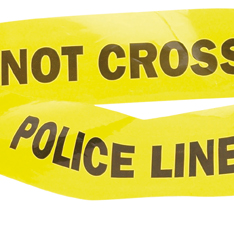Author: John Sutherland
ISBN No: 9781474612388
Review date: 20/04/2024
No of pages: 278
Publisher: Weidenfeld & Nicholson
Publisher URL:
https://www.orionbooks.co.uk/titles/john-sutherland-2/crossing-the-line/9781474612388/
Year of publication: 06/09/2021
Brief:
Crossing The Line
Blue was at once a memoir of John Sutherland as a policeman who reached senior rank then had to leave the Met Police on medical grounds (‘I know that I have my scars’, as Sutherland writes towards the end of his second book, Crossing The Line), and told us much about crime and London and British society of the last two decades.
Crossing The Line is like the second album by many pop bands that have brought out a fresh and popular first album; much the same ground is covered, in as fresh and popular a way as the first, however sparking the uncomfortable thought that any further books will be less fresh – as Sutherland begins by recalling, he ‘started out in the Met in the early 1990s’, which for anyone of his generation feels a long time ago, another world even, already.
Leaving aside that nagging concern, Crossing The Line is that enjoyable book – written with authority by someone who is unafraid to draw conclusions. It’s telling that not only is Sutherland a former policeman, but that he rose to high rank – chief superintendent – high enough to make connections between street level cases and political policy, but not high enough to turn into a robot – whether politician-friendly or cause-of-the-day-advocate – like some highest rank police officers.
Early on (page 3-4) he introduces what the title means; that he wants the reader to ‘cross the line from one side of the cordon tape to the other and to stand for a while in the places where police officers spend their working lives’. As he adds, some of what’s beyond ‘is unavoidably grim’; sexual abuse, knife wounds and murders, mental illness (‘the first time I was punched on duty, it was by someone who was mentally unwell’; page 106).
The strength of what Sutherland has to say is that time and again he is able to make connections, between his experience as a cop, and what it means for wider policing, and for law-abiding society. For instance, the annual Notting Hill Carnival, at once a ‘fixture of west London life’ and cover for a few violent criminals (page 148). Managing the crowd congestion in one place might only make trouble in another place. Sutherland took the lesson; ‘solving your problem by creating a problem for someone else really isn’t solving anything at all’.
As Sutherland goes on to observe, that’s true if police in one London borough merely displace criminals ‘next door’ into another borough, or if one agency – youth offending, drug treatment, and so on – merely pass files to the next agency in a ‘grim merry-go-round’; until Friday evening, when it’s the police’s problem if anything happens over the weekend.
Sutherland concludes with what needs to and what ought to change. He acknowledges that all was not well with the police when he served (lumbering, bureaucratic and frequently wasteful of public funds’) but casts doubt on the Coalition and then Conservative governments’ reforms after 2010. Put another way, giving the country better policing is partly about money – funding enough detectives and bobbies on the street – but more besides. Sutherland makes the acute point ‘that any substantial and effective transformation of policing requires a deep understanding of the job and its people’. He notes that few MPs have experience of being a cop; far more have been in the Army.
In a word, politicians in power have fallen down because they fail to understand realities – realities that Sutherland expresses so well in Blue, and now Crossing The Line. Now that Sutherland is no longer a serving police officer, his ability to express that reality will inevitably fade. Whatever he chooses to do next, in policing or out, he will bring many talents – observation; compassion; and a gift for explanation and analysis, even if it is uncomfortable in terms of public policy. As he writes towards the end (page 266): “Terrorism and violence are difficult, and difficult demands far too much of us. Difficult takes far too long. Difficult costs far too much. Difficult is, well, just too difficult. But that isn’t good enough.” He has brought us back to ‘cross the line’, to witness and act on those ‘places where police officers spend their working lives’.
Note; the paperback has an extra chapter covering policing of the covid pandemic.










